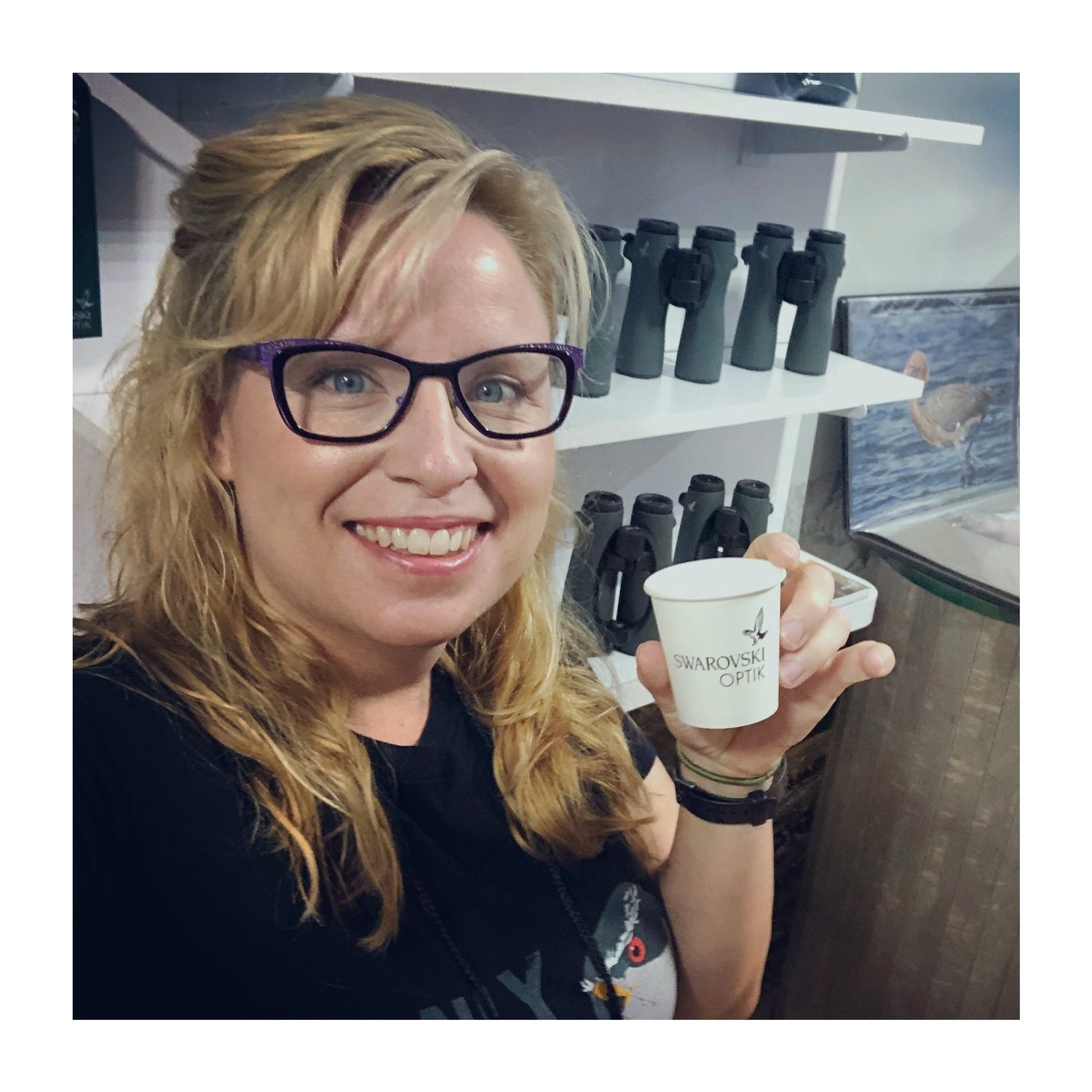Birdorable Guest Blogging Contest #1: Callae Frazier
 NBB here. Sharon's heading off to Kazakhstan today as part of a special project for Swarovski Optik and Birdlife International, which means that it's time to begin the Birdorable Guest Blogging contest.
NBB here. Sharon's heading off to Kazakhstan today as part of a special project for Swarovski Optik and Birdlife International, which means that it's time to begin the Birdorable Guest Blogging contest.
Our first entry is from Callae Frazier, who describes her entry as: It's an avian-related personal narrative that takes place at my childhood home in the Colorado foothills where nearly every window looks out on a bird feeder
Sky Windows
Smack! Thump.
The sound, sudden and unmistakable, resonates down the hall, through open doorways and anyone in the house familiar with it looks up, startled. Sometimes, the echo seems to move through even the walls. I’ve heard an impact resonate from the front of the ranch-style house to my back bedroom. More often I am in the kitchen, or living room, or study, all near the front of the house and closer to the most often hit windows. Windows that look out on some of the busiest bird feeders among the nearly dozen seed stations set up around the house. Clear, wide windows that birds occasionally mistake for open, wide sky.
Smack! Thump.
Dozens of species visit the area, many stay year-round. Palm-sized, chipper, ashy mountain chickadees, with their little black caps and eye stripes and chins are fairly ubiquitous. Ground-feeding juncos, all varieties, all stocky and stout, also spend most of the year pecking about the ground under feeders, in the driveway, or on the platform feeders. Bullet-shaped nuthatches, white-breasted, red-breasted, and their tiny compact cousins the pygmy’s, “yank, yank, yank” their arrival at the feeder. House finches, goldfinches, pine siskens sing their melodious, waterfall-garbled song from high atop trees before swooping down and joining the others. Orangy-red male and yellow female crossbills pass through occasionally, their high-pitched, “kip-kip-kip” calls foreshadowing their arrival. They sit upright on the hanging feeders, and I must check, and double-check their oddly formed bills every time, marveling at how the upper mandible literally crosses over the lower one. Winter flocks of hand-sized, yellow-bellied, thick-billed evening grosbeaks provide a bright spot of color against a snow and dark pine backdrop. Still larger birds visit as well. Mohawked, Stellar’s jays bully juncos from the driveway, and chickadees from the platform feeders with their large bodies, and raucous calls. We know summer has arrived when the quiet mourning doves arrive in the drive, delicately pecking seeds. The surrounding diverse sliver of habitat in a life zone typically reserved for lodgepole pine entices the birds. And the birds entice me.
My mom tells the story of how, even when I was a little girl I loved to sit in the elevated, recessed, bench next to the entryway and watch birds for hours out the bay window. We call the space our “window box” on account of its boxy, rectangular shape. The window looks out on a wide, multi-level wrap around deck and I look out at birds on the platform feeder attached to the deck railing. When young, I asked for the names of birds all the time. Mom knew them all, and by the time I started first grade I knew my colors, letters and numbers along with the names for chickadee, nuthatch, jay and junco. I knew that chickadees’ nasaly call sounded like their name, “chick-a-dee-dee-dee.” My parents adopted the chickadee’s clear two-note, descending minor-third whistle, “fee-bee”, as a way to find each other in a busy space, or to get each other’s attention. Of all the multitudes of books in the house, The Golden Guide to Birds was one I could always find on the full shelves. Before I could write, I made up stories, sitting there in the window. Mom listened, and committed my words to paper. Sealed in envelopes, my words flew thousands of miles away to my Grandparents in a silver-winged bird.
Thwap!
A flutter of anticipation begins when the sound reverberates down the hall. Approaching the window box, I search out the only sign of trauma - a bit of feathers stuck to the glass. Pressing my face to the smooth, cool surface of the window sometimes allows me to see the tiny, feathered thing on the deck below. The dogs, curious, will hop up the bench with me. Their warm breath fogs up my view. I’ve learned to leave them inside when I investigate. They sometimes mouth stunned birds and inadvertently finish off the job. I hold them at the front door with my knees, and slip out between jostling bodies and lolling tongues. There, on the brown deck, I most often find a grey chickadee or dark-headed junco lying spread-legged, wings outstretched. Larger grosbeaks and deep blue, black-crowned jays are other common casualties of our windows.
Surprisingly, for the number of windows in the house (over 40), and the number of birds who have found our land an invaluable food source over the years (hundreds), remarkably few have perished. After smacking into the windows they fall to the ground more often only stunned. I gently scoop up the lightweight bundles, cupping their small warmth in my hand. They breathe so fast. Little chests heaving up and down. Heavily lidded eyes, glazed with shock, do not acknowledge me. Their heartbeat pounds furiously into my palm. It is as though they go into a kind of coma, their brain and neurons checking and rechecking the stunned body. I like to believe my hands provide them shelter and warmth. A miniature recovery room. A little patience, careful watching, and suddenly the “on” switch clicks. Small glassy eyes brighten, drooping wings straighten, an alert head rises, cocks, looks about. I hardly exhale then, waiting to see how long they will stay.
The stunned birds never fly far. Sometimes they make it to the wide, flat bird feeder attached to the railing. Maybe they rest there a while. Often they dip into the plethora of seeds at their feet. Within moments they fight off other feeders come to the feast. I stand mere feet away, and trace the invisible impression of wing strokes crossing delicately across my palm. Sometimes I can find small pinprick depressions where their claws pressed down.
Thwack!
I know right away if the window-smacked birds are dead. There is something unmistakable about a dead thing. The way the neck bends loosely, the closed eyes, sometimes a drop of blood at the base of the delicate, grey beak. The stillness.
When I was very young my parents helped me bury birds knocked off by windows. We dug a shallow grave out in small area west of the garden. A place that today holds bones of several well-loved pets. I probably covered the little mound with a rock. Felt perhaps a little sad. But I also found the streamlined shape, soft feathers, and the delicate lightness of the little body fascinating. A dead bird gave me a chance to see the normally fluttery critters up close.
Later, feeling silly for making bird graves, I walked some distance into the woods, and tossed them into a bush. Something would find and eat them. Maybe a crow or fox. Hopefully not our indoor/outdoor cat who had a habit of bringing dead things into the house, leaving them as surprising gifts on beds, or by doors. I might also take the dead birds and deposit them deep in the compost pile where they would slowly decompose, adding their nutrients to the existing combination of vegetable parts, egg shells, coffee grounds, plant trimmings, and hay. Yes, I know you aren’t supposed to include meat in your compost, but when I was young I hardly considered the small flesh of birds an inappropriate addition to the compost.
In late August, when I made my regular round of plucking fresh snacks in the low, golden light of the autumn garden, I wouldn’t remember the birds I buried in the compost a year or two before. But they’d be there.
There, in the squat carrots I’d wrest from the soil, barely wiping the soil free on my jeans before chomping down the crisp earthy sweetness. Or there, in the round burst of sugar peas on my tongue as I popped them into my mouth one, by one. Pop, pop, pop. Their presence would be found in the meaty muscle of turnips and potatoes dug out of the soil with my bare hands. The invisible bits of birds who once mistook a clear wide window for clear open sky.
